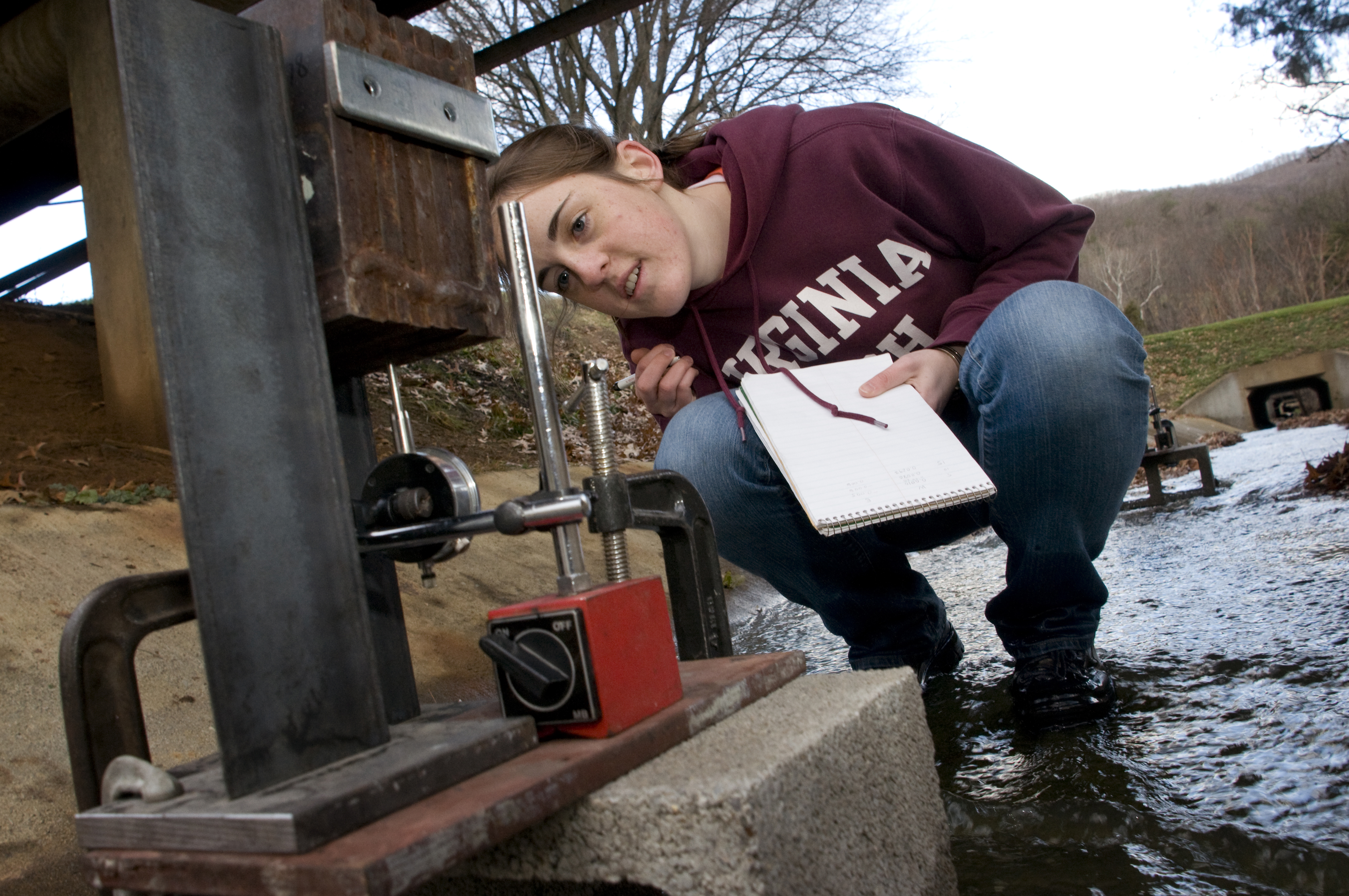College of Engineering alumna wins National Science Foundation research fellowship

The National Science Foundation (NSF) has awarded a graduate research fellowship to a recent alumna from the College of Engineering at Virginia Tech.
Elaine Huffman of Bowie, Md., graduated in May from the college's Charles E. Via Jr. Department of Civil and Environmental Engineering. Huffman this fall will enter Massachusetts Institute of Technology (MIT), where she will pursue a master’s of science degree in building technology. Although the program is based in the department of architecture, it remains a multidisciplinary group with civil and mechanical engineering.
Huffman's research will be focused on historic structures, particularly the collapse behavior of masonry structures. This past year she participated in a load-bearing analysis of a historic 130-year-old bowstring truss iron footbridge located in Ironto, Va. Built in 1878 and now part of an Interstate-81 rest stop, the bridge is said to be the oldest standing metal bridge in Virginia.
For her efforts on the footbridge, Huffman won both the Marr Technical Paper and Hardy Cross Presentation Awards at the American Society of Civil Engineers (ASCE) Virginias Conference. She also was voted the 2010 Outstanding Senior in the Virginia Tech civil and environmental engineering department.
NSF fellowships provide students with three years of funding, including a tuition supplement and a stipend of $30,000 per year. Graduate research fellows are selected on academic merit, proven ability to conduct research and future academic and research goals.
The College of Engineering at Virginia Tech is internationally recognized for its excellence in 14 engineering disciplines and computer science. The college's 6,000 undergraduates benefit from an innovative curriculum that provides a "hands-on, minds-on" approach to engineering education, complementing classroom instruction with two unique design-and-build facilities and a strong Cooperative Education Program. With more than 50 research centers and numerous laboratories, the college offers its 2,000 graduate students opportunities in advanced fields of study such as biomedical engineering, state-of-the-art microelectronics, and nanotechnology. Virginia Tech, the most comprehensive university in Virginia, is dedicated to quality, innovation, and results to the commonwealth, the nation, and the world.




